Introverts, especially anxious introverts, are often characterized as being reserved, and shy, and prefer time alone rather than socializing or socializing in a smaller group.
Alone time or spending time by themselves is for the fellow introverts the most common behavior and small talk is something, that introverts tend to hate.
While these traits can be a source of strength for most introverts, they can also lead to nervous habits that introverts are all too familiar with.
These habits may manifest as stopping talking to people, avoiding eye contact, avoiding social events, or even being overly self-critical.
In this article, we will show you the 9 nervous habits that introverts know all too well. These habits will show us what introverts are really like and how this group of people really sees the world through these habits.
1. Fidgeting: The Release Of Nervous Energy In Social Situations
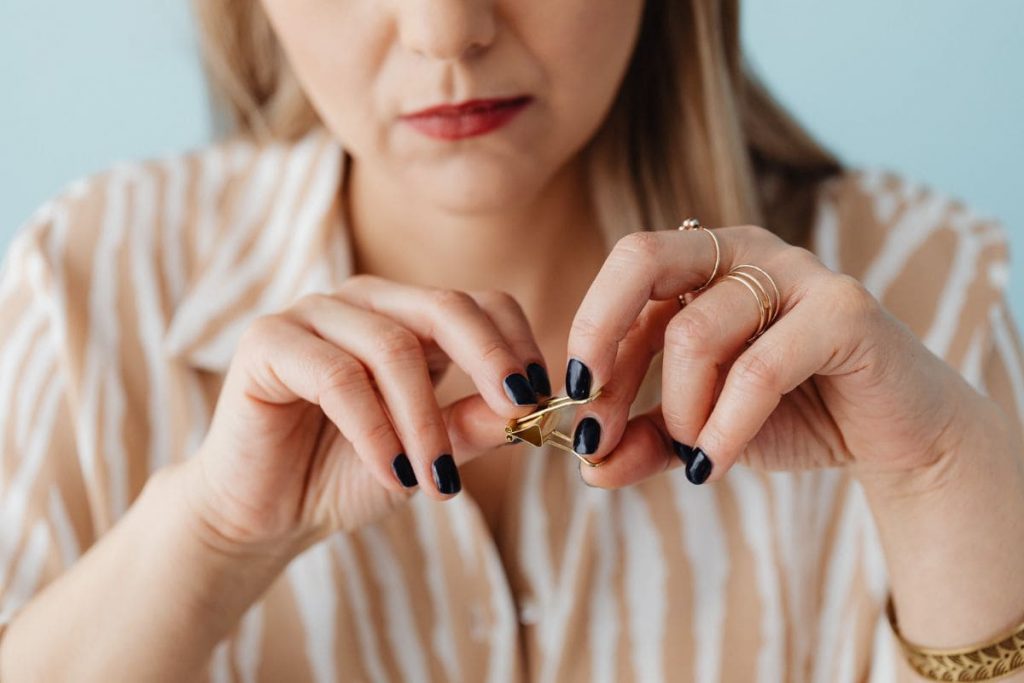
Many people that identify as an introvert tend to have the habit of fidgeting. Introverts tend to be deep thinkers, they choose their words carefully for fear, that they might say something wrong or embarrass themselves.
When their thoughts become overwhelming, they may begin fidgeting with objects or tapping their feet to release the nervous energy. In this way, introverts can pull themselves out of the situation a bit and collect their thoughts.
Many factors can trigger this behavior, for example, a large group of people around them or when the focus is only on them when they speak. They feel uncomfortable and the negative and nervous energy piles up.
The common misconception by most people is (extroverts most of the time), that introverts find this situation so boring, and that fidgeting is more interesting than participating in society. But the reality is different, as we see.
2. Nail-Biting: A Nervous Common Habit

Nail-biting is a common habit that affects many people, including introverts. It is often a result of stress, anxiety (a common mental illness), or nervousness, and can be a way to cope with these emotions or difficulties in mental health.
Introverts may be more likely to develop nail-biting nervous habits because they tend to spend more time in introspection and reflection (Overthinking), which can sometimes lead to increased stress and anxiety.
Introverted People may feel more self-conscious, doubt themselves, or be anxious in social situations, which can also lead to nail-biting as a coping mechanism.
3. Scratching Is A Common Nervous Habit Of Introverts
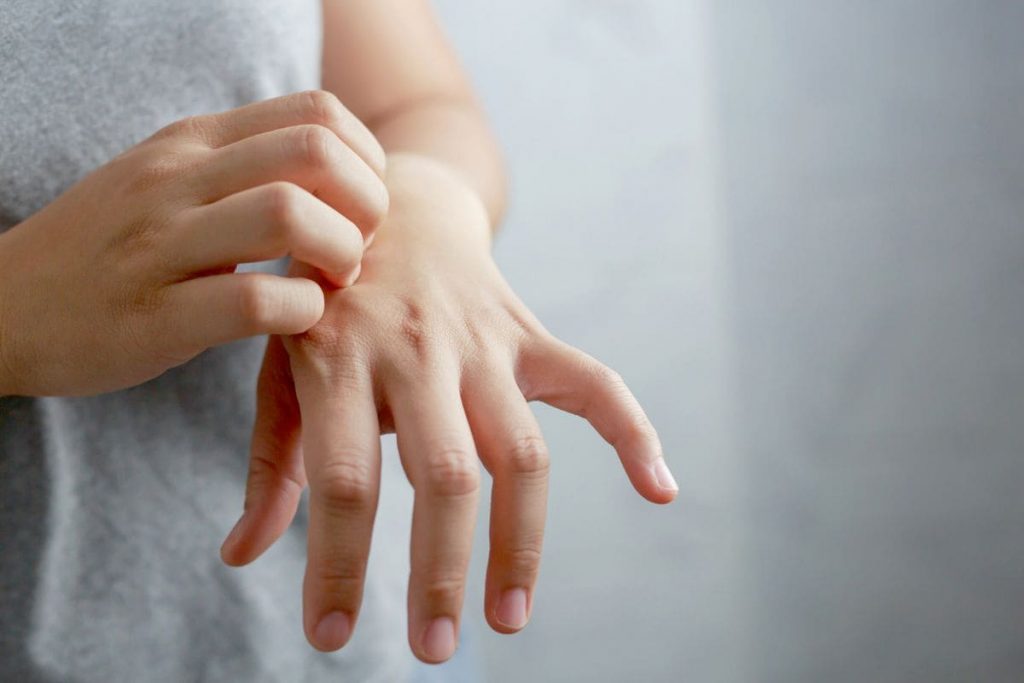
Scratching is also a common habit that can impact introverts. It can be a way to relieve stress or tension, it is very similar to nail-biting.
Introverts who experience social anxiety may scratch as a way to self-soothe when feeling uncomfortable or nervous in social situations.
Additionally, introverts may engage in scratching as a way to release pent-up tension or frustration, particularly when spending a lot of time alone in the dark corners of their home, which many introverts prefer.
4. Jaw Clenching Or Bruxism

Jaw clenching, or bruxism, is another habit that can affect introverts, particularly those who experience high levels of stress and anxiety.
When they stop talking to another person, they often spend time doing this habit without even realizing it.
Bruxism involves:
- the involuntary clenching
- grinding
- gnashing of teeth typically during sleep, but it can also occur during the day.
Introverts who experience social anxiety or social butterflies may be more likely to clench their jaw as a way to cope with nervousness or tension in social situations.
Additionally, introverts who spend a lot of time alone or in quiet settings may clench their jaw as a way to release tension or pent-up frustration.
5. Nervous Laughing: A Defense Mechanism!
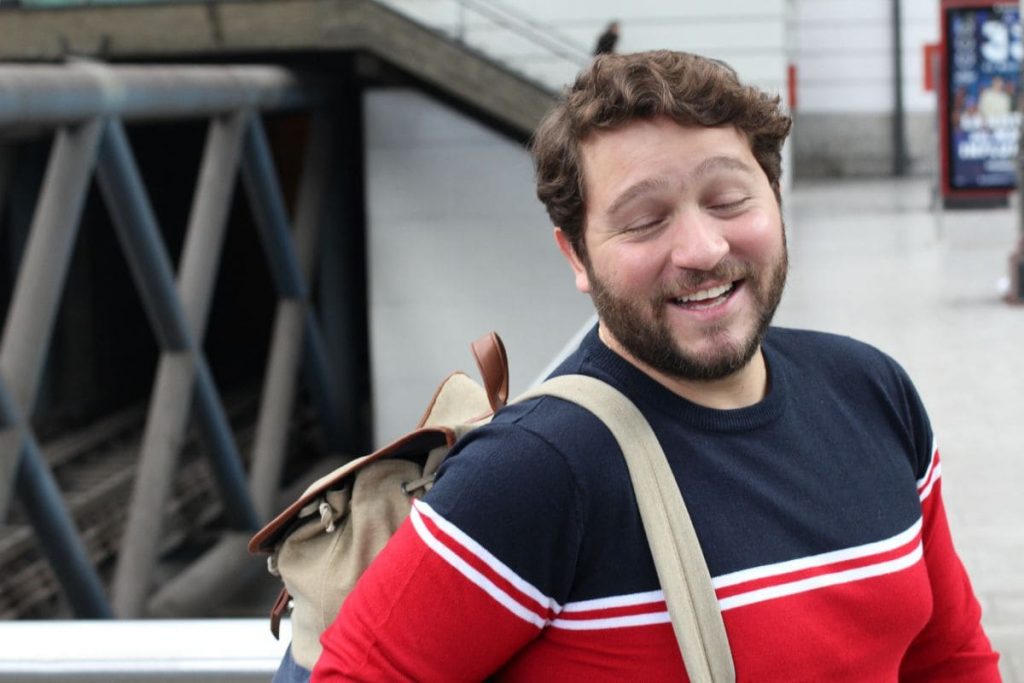
Introverts may use laughter as a way to mask their nervousness, even in situations where it is inappropriate. This can make them seem insincere or unprofessional.
The nervous laughter is only a sign that the introvert is not comfortable in this situation. Like fidgeting, this is also a way in which the introvert can detach himself from negative energy.
This is also a kind of defense mechanism for the introvert. The introvert tries to hide his true feelings through laughter.
Because when he shows nervousness or negativity, he feels vulnerable, and the introvert tries to hide that at all costs.
These are things introverts do that society finds weird, but aren’t. Introverts just have a different way to cope with their feelings.
6. Hair Twirling Or Playing With Clothes/Accessories

Twirling or playing with hair can be a nervous tick that introverts may exhibit when they feel overstimulated or anxious.
It’s a kind of relief for the introvert, it involves the repeated twisting or twirling of one’s hair, often as a way to self-soothe or cope with stress, anxiety, or boredom.
Introverts may also start playing with their clothing or accessories, such as adjusting their collar or bracelets, when they are feeling nervous.
More specifically, it involves the repeated touching, fiddling, or adjusting of one’s clothing, typically as a way to self-soothe or cope with stress, anxiety, or another emotion.
7. Stuttering: Common Habit By Speaking

When introverts feel pressured to speak, they may become nervous and start stuttering. This can be frustrating and embarrassing for them, especially in professional situations.
This is a sign from the body that the introvert feels overwhelmed in this situation. The fear of failure is too high, and that’s where this habit comes from.
We have already mentioned that introvert is not able to keep eye contact in conversations. In these situations, stuttering is a clear sign that this situation is anything but pleasant for the introvert.
If you experience this behavior often, breathing correctly is a great way to get a handle on these feelings and the body’s reactions.
8. Withdrawing When The “Social Battery Dies”
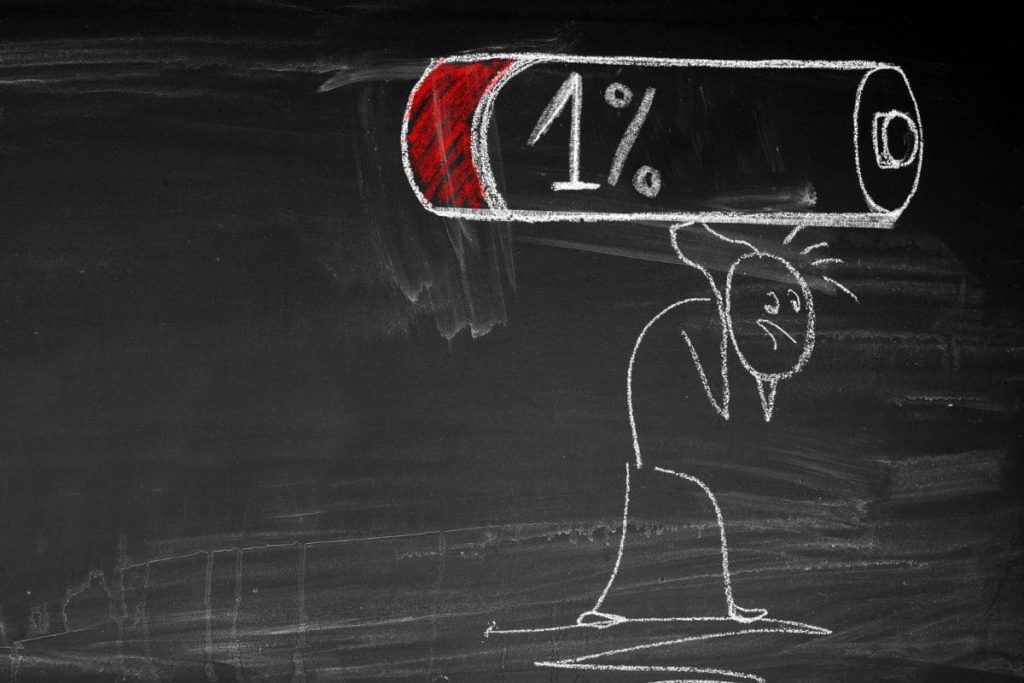
Withdrawing is a common nervous habit exhibited by introverts. It refers to the tendency of introverts to retreat or withdraw from social situations, especially when they become overwhelmed or overstimulated.
When an introvert feels overstimulated or drained from social interactions, they may need time to recharge their energy by spending time alone.
During this time, they may withdraw from social situations, such as leaving a party early or avoiding large social gatherings altogether.
This tendency to withdraw can be misunderstood by others as being antisocial or unfriendly. However, for introverts, it’s a natural way of managing their energy levels and reducing the potential for social burnout.
It’s important to note that withdrawing doesn’t necessarily mean that an introvert is unhappy or depressed, it’s just a way for them to recharge and regain their focus.
Understanding this habit can help introverts and their friends, family, or colleagues build stronger and more positive relationships.
9. Mindlessly Scrolling Through The Phone To Avoid Conversation
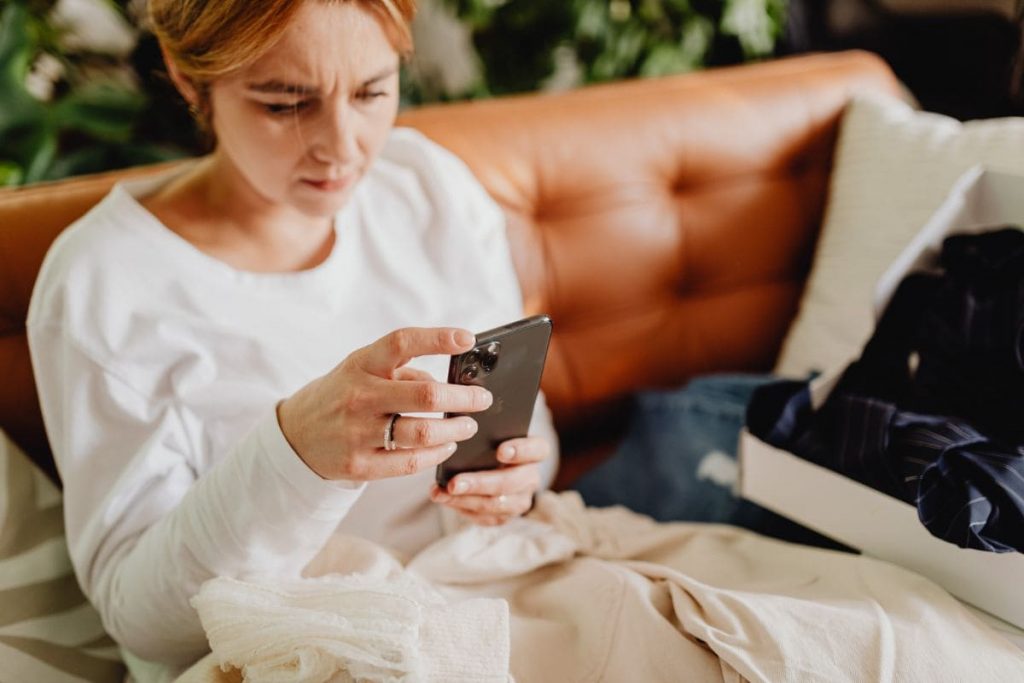
Mindlessly scrolling through the phone is a common nervous habit that introverts may exhibit to avoid or hide from a conversation or social interaction.
When introverts feel overstimulated or anxious in social situations, they may turn to their smartphone as a way to distract themselves and avoid having to engage in conversation.
This behavior is a common misconception about introverts of them being disinterested or unfriendly. Still, it’s essential to understand that for introverts, this is a way to manage their nervous/negative energy and reduce their anxiety.
This habit feels comfortable for introverts at this specific point in life. The little quiet time with the phone in a hectic environment will sink their blood pressure and the anxiety will be more manageable.


